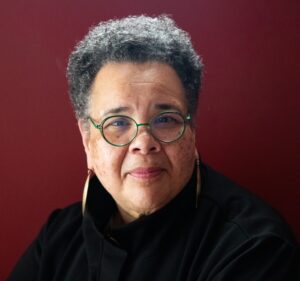
For the Sake of Possibility, Nurture Curiosity
(An audio version of this blog may be found here.)
We were not gathered to analyze the problems facing systems of education, societal storms, weaponized misinformation, wars around the globe, or climate change. We were not convened to solve problems of organizational structures or craft new and much needed policies and procedures to salvage educational enterprises. Rather, this was a gathering of Wabash Center leaders—highly credentialed colleagues, experts in their own fields, invested in the art and innovation of teaching.
Wabash Center leaders assembled, as the invitation read, “to whet appetites, inspire new thinking, beckon the muse, provide new insights, rekindle the imagination, move us out of the constraints of boxed/hobbled ideas, and encourage new kinds of experiments in our classrooms and curriculum. Specifically, we gather with prominent thought leaders from other fields than religion to grapple with this meta-question:
What are the possible futures of teaching religion and theology, and how do we imagine and create those possibilities?
Our discussion centered on the belief that the map/plan/direction to the new world is in our shared imaginations and risk-taking capabilities. For the sake of possibility, we assembled to nurture our collective curiosity.
Our presuppositions were not new or novel. We need a new vision if we are to have educational paradigms adequate for a democratic society in the coming future. We know that it is not enough to tweak, patch, or cling to, hollowed-out traditions of the current operation of higher education. If we are to establish systems of education which can sustain a flourishing society into the future, we must be about the business of casting new visions, pursuing new longings, and seeing new approaches. For this, we need curiosity, clarity of imagination, better communication concerning unusual approaches and a willingness to open ourselves to originality. We need detailed dreams and concise dreamers who will, with precision, help wean us from our dogged reliance upon the tired, ineffective paradigm. We convened to prepare for a future that is much different from our now.
The Curiosity Roundtable gathering did not disappoint. Feedback from the participants told us that we convened a worthwhile conversation. Here is a sampling of the feedback from participants:
- Using an approach related to curiosity wherein none of us was expected to be the experts, opened spaces for authentic engagement, laughter, reflection and community building.
- The opportunity to connect with others and engage in a different set of carefully curated conversations really accomplished the task of awakening our curiosity.
- I was surprised, but shouldn’t have been by now, at the vision of the Wabash Center to bring a set of unexpected conversation partners to the group – the Porche experience, an artificial intelligence sociologist and activist, a racialized socialization of children expert, a spoken word poet, and artist salon conveners. It worked! It worked in ways that will keep working on me, and I trust the whole group, in our own ways.
Throughout our conversation we identified practices to foster curiosity. Here are a few of the ideas which bubbled around during the conversation:
- Push yourself to experience the wild, untamed, unfettered, out-of-the-box, unplanned spontaneous, improvisational, and undisciplined.
- Stay rested. Know what your body feels like when rested. Pursuing curiosity requires rest and calm.
- Learn to pay attention to daydreams, sleeping dreams, nightmares, desires, fantasies, and wishes. They might be as important or more important than aims, goals, and outcomes.
- Read beyond your academic discipline. Become an interdisciplinary agent. Read novels, short stories, creative nonfiction, stories of all genres.
- Write novels, short stories, creative nonfiction of all descriptions.
- Surround yourself with creatives—people who are unafraid of painting, sculpting, creative writing, film making, dancing.
- Practice new artistic expression(s) then pursue them passionately.
- Kindle the joy of being deeply moved by beauty or freedom. As best you can, avoid the ugliness of participating in oppression, exploitation, and the marginalization of people – especially if it is to your benefit.
- Practice silence, stillness, meditation, and contemplation.
- Attend to the health of your body as if you love it and need it to thrive.
- Attend to the health of your mind as if you love it and need it to thrive.
- Attend to the health of your soul as if your life depends upon it.
- Kindle relationships with family, friends, neighbors to surround yourself with love, care, and mercy.
- With regularity, make believe, pretend, fantasize, and goof off.
- Practice compassion because it is good education.
The Curiosity Roundtable concluded with the challenge to each participant to develop a praxis project inspired by our conversation which will continue to unbridle their curiosity. The proposals are due in a couple of weeks. I suspect the projects will transform our world for the better!
Leave a Reply